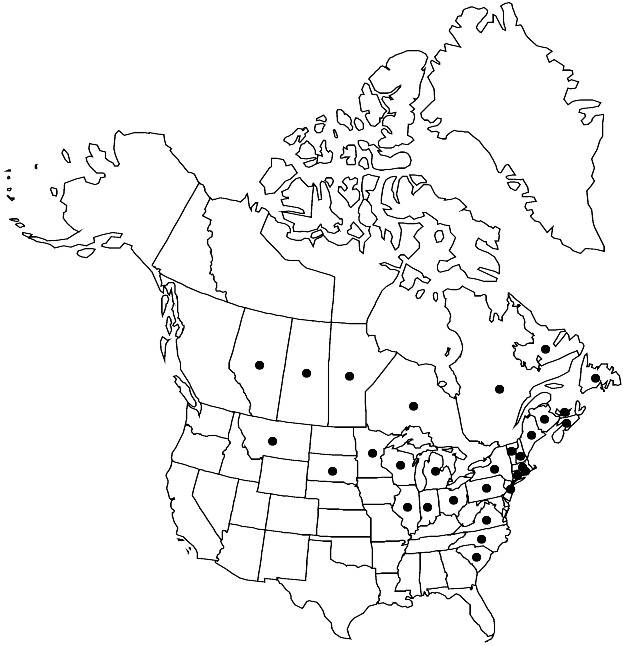Difference between revisions of "Herzogiella turfacea"
J. Hattori Bot. Lab. 33: 375. 1970.
FNA>Volume Importer |
imported>Volume Importer |
||
| (6 intermediate revisions by 2 users not shown) | |||
| Line 7: | Line 7: | ||
|year=1970 | |year=1970 | ||
}} | }} | ||
| − | |basionyms={{Treatment/ID/ | + | |basionyms={{Treatment/ID/Basionym |
|name=Hypnum turfaceum | |name=Hypnum turfaceum | ||
|authority=Lindberg | |authority=Lindberg | ||
| + | |rank=species | ||
| + | |publication_title=Bot. Not. | ||
| + | |publication_place=1857: 142. 1857 | ||
}} | }} | ||
|synonyms={{Treatment/ID/Synonym | |synonyms={{Treatment/ID/Synonym | ||
|name=Dolichotheca turfacea | |name=Dolichotheca turfacea | ||
|authority=(Lindberg) Loeske | |authority=(Lindberg) Loeske | ||
| − | }}{{Treatment/ID/Synonym | + | |rank=species |
| + | }} {{Treatment/ID/Synonym | ||
|name=H. pseudosilesiacum | |name=H. pseudosilesiacum | ||
|authority=(Schimper) Lesquereux & James | |authority=(Schimper) Lesquereux & James | ||
| − | }}{{Treatment/ID/Synonym | + | |rank=species |
| + | }} {{Treatment/ID/Synonym | ||
|name=Isopterygium turfaceum | |name=Isopterygium turfaceum | ||
|authority=(Lindberg) Lindberg | |authority=(Lindberg) Lindberg | ||
| − | }}{{Treatment/ID/Synonym | + | |rank=species |
| + | }} {{Treatment/ID/Synonym | ||
|name=Plagiothecium sulcatum | |name=Plagiothecium sulcatum | ||
|authority=Cardot & Thériot | |authority=Cardot & Thériot | ||
| − | }}{{Treatment/ID/Synonym | + | |rank=species |
| + | }} {{Treatment/ID/Synonym | ||
|name=P. turfaceum | |name=P. turfaceum | ||
|authority=(Lindberg) Lindberg | |authority=(Lindberg) Lindberg | ||
| − | }}{{Treatment/ID/Synonym | + | |rank=species |
| + | }} {{Treatment/ID/Synonym | ||
|name=Sharpiella turfacea | |name=Sharpiella turfacea | ||
|authority=(Lindberg) Z. Iwatsuki | |authority=(Lindberg) Z. Iwatsuki | ||
| + | |rank=species | ||
}} | }} | ||
|hierarchy=Hypnaceae;Herzogiella;Herzogiella turfacea | |hierarchy=Hypnaceae;Herzogiella;Herzogiella turfacea | ||
| Line 44: | Line 53: | ||
|elevation=low to moderate elevations (30-500 m) | |elevation=low to moderate elevations (30-500 m) | ||
|distribution=Alta.;Man.;N.B.;Nfld. and Labr.;N.S.;Ont.;P.E.I.;Que.;Sask.;Conn.;Ill.;Ind.;Maine;Mass.;Mich.;Minn.;Mont.;N.H.;N.J.;N.Y.;N.C.;Ohio;Pa.;R.I.;S.C.;S.Dak.;Vt.;Va.;Wis.;Europe;Asia. | |distribution=Alta.;Man.;N.B.;Nfld. and Labr.;N.S.;Ont.;P.E.I.;Que.;Sask.;Conn.;Ill.;Ind.;Maine;Mass.;Mich.;Minn.;Mont.;N.H.;N.J.;N.Y.;N.C.;Ohio;Pa.;R.I.;S.C.;S.Dak.;Vt.;Va.;Wis.;Europe;Asia. | ||
| − | |discussion=<p>Herzogiella turfacea is characterized by the often distant, erect- to wide-spreading, sometimes plicate leaves, appearing distichous due to their twisting to opposite sides of the stems and branches, poorly differentiated alar cells, and striate capsules. The species is common in northeastern North America between 40–50º N but rare farther south in North and South Carolina and Virginia. It is known from only a few scattered localities in Alberta, Manitoba, Saskatchewan, Illinois, Montana, Ohio, and South Dakota.</p> | + | |discussion=<p><i>Herzogiella turfacea</i> is characterized by the often distant, erect- to wide-spreading, sometimes plicate leaves, appearing distichous due to their twisting to opposite sides of the stems and branches, poorly differentiated alar cells, and striate capsules. The species is common in northeastern North America between 40–50º N but rare farther south in North and South Carolina and Virginia. It is known from only a few scattered localities in Alberta, Manitoba, Saskatchewan, Illinois, Montana, Ohio, and South Dakota.</p> |
|tables= | |tables= | ||
|references= | |references= | ||
| Line 53: | Line 62: | ||
-->{{#Taxon: | -->{{#Taxon: | ||
name=Herzogiella turfacea | name=Herzogiella turfacea | ||
| − | |||
|authority=(Lindberg) Z. Iwatsuki | |authority=(Lindberg) Z. Iwatsuki | ||
|rank=species | |rank=species | ||
| Line 68: | Line 76: | ||
|publication year=1970 | |publication year=1970 | ||
|special status= | |special status= | ||
| − | |source xml=https:// | + | |source xml=https://bitbucket.org/aafc-mbb/fna-data-curation/src/2e0870ddd59836b60bcf96646a41e87ea5a5943a/coarse_grained_fna_xml/V28/V28_817.xml |
|genus=Herzogiella | |genus=Herzogiella | ||
|species=Herzogiella turfacea | |species=Herzogiella turfacea | ||
Latest revision as of 21:38, 5 November 2020
Plants in thin mats, light green to yellowish. Stems 3 cm, 1.5–2.5 mm wide, creeping. Leaves squarrose-spreading, sometimes erect-spreading, usually appearing distichous and complanate due to twisting of leaves to form 2 rows on opposite sides of stems and branches, not or weakly plicate, 1–2 × 0.3–0.7 mm; base not decurrent or sometimes 1–3 short cells indistinctly decurrent; margins serrulate to serrate; alar cells quadrate to short-rectangular on margins, sometimes 1 cell at extreme basal angle, rounded to oval and inflated, 14–34 × 9–22 µm, green; basal laminal cell walls pitted, indistinctly pitted distally, sometimes pits absent; medial cells 43–80 × 3–6 µm. Sexual condition autoicous. Seta light brown to red, 1.2–2 cm. Capsule inclined, light brown, oblong to cylindric, slightly arcuate, 0.8–2 × 0.3–0.6 mm, contracted below mouth when dry; operculum conic to conic-apiculate, 0.3–0.4 mm. Spores 10–15 µm.
Phenology: Capsules mature summer.
Habitat: Coniferous woods, swamps, humus, base of trees, rotten logs, stumps, rock
Elevation: low to moderate elevations (30-500 m)
Distribution

Alta., Man., N.B., Nfld. and Labr., N.S., Ont., P.E.I., Que., Sask., Conn., Ill., Ind., Maine, Mass., Mich., Minn., Mont., N.H., N.J., N.Y., N.C., Ohio, Pa., R.I., S.C., S.Dak., Vt., Va., Wis., Europe, Asia.
Discussion
Herzogiella turfacea is characterized by the often distant, erect- to wide-spreading, sometimes plicate leaves, appearing distichous due to their twisting to opposite sides of the stems and branches, poorly differentiated alar cells, and striate capsules. The species is common in northeastern North America between 40–50º N but rare farther south in North and South Carolina and Virginia. It is known from only a few scattered localities in Alberta, Manitoba, Saskatchewan, Illinois, Montana, Ohio, and South Dakota.
Selected References
None.